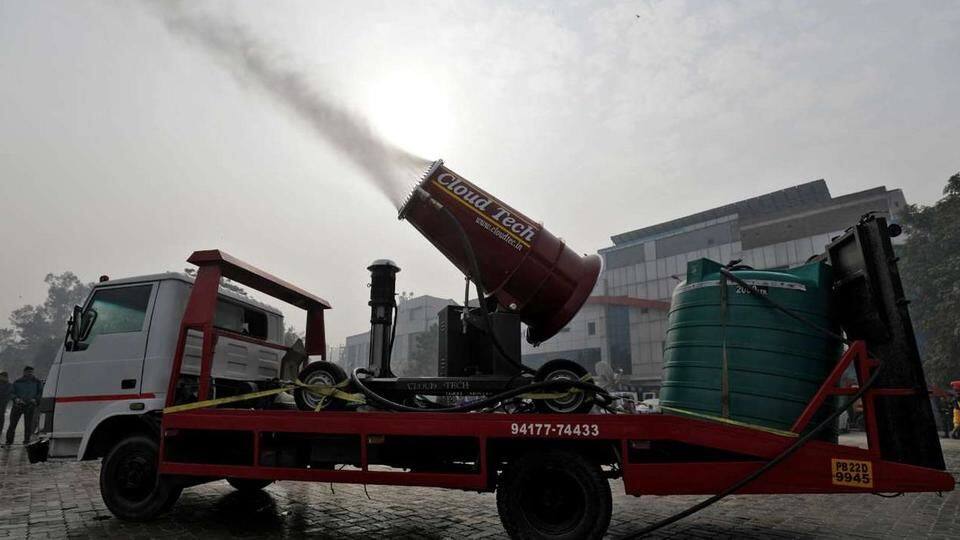
AAP government tests anti-smog guns, but will they help Delhi?
What's the story
The Delhi government has tested another weapon against the capital's hazardous smog - a "first of its kind" field experiment with anti-smog guns. It conducted the trial as air quality went down yesterday to 359, or 'very poor'. Three days ago, it was 'moderate' at 197. Tests were conducted at Anand Vihar, the city's pollution hotspot. Its viability will be determined by the DPCC.
Device
More about the 'anti-smog guns'
'Anti-smog guns' are basically water cannons that spray atomized water, which is absorbed by pollutants like PM10, thus clearing the air. However, ultra-fine PM2.5 particles won't absorb the water. According to a senior officer, it will work only when wind speeds are low. This was earlier used during the 2010 Commonwealth Games to clear stadiums of dust.
Data
Did the first experiment show results?
Real-time DPCC data during the experiment (10am-2pm) showed pollution levels didn't fall much, but instead rose towards the later part. The hourly readings were 630, 608, 736, 842 and 702 (PM10) and 444, 421, 476, 509 and 460 (PM2.5). Wind was at 3kmph.
Factors
So why didn't it work?
Anti-smog guns, which are best-suited for small areas like stadiums/coal mines/power plants, might not be suitable for Delhi, which has multiple sources of pollution. Though yesterday's trial was conducted with grid power, manufacturers say the machine would run on diesel generators, which would add to the pollution. Moreover, unlike yesterday's 'miniature' version, the actual machines would cost Rs. 35-40L and carry 12,000L of water.
Future
Delhi govt to conduct more experiments to fight smog
The Delhi Pollution Control Committee will conduct a feasibility study for anti-smog guns; officials say the portable cannons, connected to a water tank, can be taken across the city. More experiments will be conducted to determine the best anti-smog weapon, Delhi Environment Minister Imran Hussain said. The government is also planning conversion of two-wheelers to electric vehicles and banning diesel generators, among others.